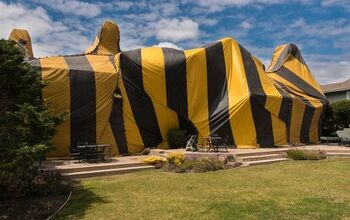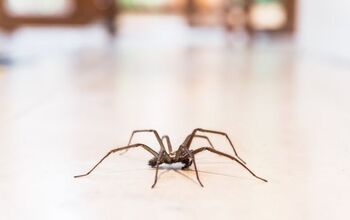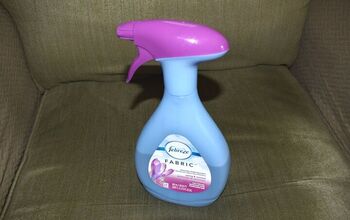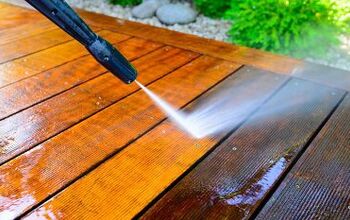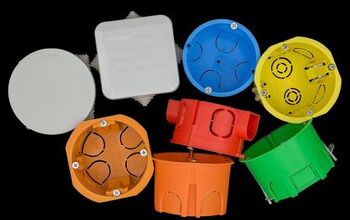Does Termite Fumigation Kill Spiders? (Find Out Now!)

Getting the news that you have termites can feel like a death sentence, but could there be an upside? Fear of spiders is one of the most common phobias and also a very common infestation. So could you potentially kill two birds with one stone; does termite fumigation kill spiders?
The termite fumigation process uses the chemical sulfuryl fluoride, which is incredibly toxic. Therefore, termite fumigation kills spiders, plus the process kills all other pests in the household. There are also substantial health risks for you if you don’t follow the protocol for fumigation to the absolute letter.
Understanding the termite fumigation process can benefit other issues happening in your home. Let’s explore the ins and outs of termite fumigation and its effect on spiders and other household pests.
Do You Need Pest Control Services?
Get free, zero-commitment quotes from pro contractors near you.

What Is Fumigation?
Fumigation is the process of pest removal via filling an area with a gaseous chemical. This is a highly toxic process. However, as long as you follow the proper protocol, it is incredibly safe.
Still, should you rely on termite fumigation to kill spiders? First, it’s important to know the specifics of any infestation in your house.
Signs Of Spider Infestations
Spider infestations are very common in the home. There are several ways to identify spider infestations, and removal can range from simple at-home remedies to professional services.
- Excess Of Webs — If you are noticing unusually large numbers of webs in your home, this is likely a sign of an infestation. Some webs are typical of any home and should not be a concern. If you notice a change in the number of webs, this should be a red flag of a possible infestation.
- Increase In Flying Insects — Flying insects like gnats, flies, mosquitos, and moths are the primary food source for spiders. An increase in flying pests can potentially draw spiders into the home in order to feast on the insect surplus.
- Egg Sacs — Spiders are able to produce hundreds of babies in a single egg. If you notice spider sacs in your home, this can double or triple the number of spiders every 2-3 weeks. It is important that you dispose of these eggs as soon as you find them to avoid further infestations.
- Increased Spider Presence — Increased spider presence is clearly the easiest sign to identify. If you notice a large amount of spiders in one area of your home, it’s likely that there’s an infestation. Also, if you notice the same type of spider instead of multiple types, that is another sign of infestation.
How Can Termite Fumigation Kill Spiders?
Fumigation can last up to 90 days, so if the pests remain, it’s best to wait the full 90 days. The process of fumigation is able to reach all pests in the home, even ones deeply embedded in the wood. Spiders are not burrowing pests, so a properly executed fumigation will likely kill the spiders off completely.
Alternative Methods To Fumigation
Not all pest infestations are created equal and can range from a simple overproduction of pests to a full takeover. Many people don’t like to use harsh chemicals in their homes and prefer to use natural treatments. That said, there are many remedies that you can create right out of your home.
You should note that professional care is the ideal recommendation for any serious infestation. Unfortunately, natural remedies are likely not able to entirely rid your home of a heavy infestation. This, in part, is because these remedies can’t permeate the insects’ exoskeletons.
White Vinegar
If you don’t already own cleaning vinegar, head to the store to pick up this miracle must-have. Vinegar is a household staple with hundreds of uses, from cleaning to pest control.
Vinegar is especially effective at removing spiders and ants from the home. The high acidity level deters insects from entering your home and can stop an ant trail. Adding an essential oil, such as tea tree, is also known to help assist in the removal of pests.
Coffee Grounds
Most pests have an aversion to the smell of coffee grounds. Therefore, sprinkling coffee grounds around the suspected entry point for the pests can be a good deterrent. It’s also notable that coffee grounds are a great natural alternative for pesticides on plants.
Borax
Sodium borate, also known as borax, is a common termite deterrent. Sprinkling borax or spraying a borax/water mix around the affected area can help control and eliminate termites.
Borax does not repel spiders. However, boric acid (which makes up borax) is known to kill spiders.
Preventative Habits
Using preventative methods for pest infestations can save you both heartache and money. Professional fumigation is very expensive, and home damage from pests like termites can bury a homeowner in endless bills. Let’s explore some preventative methods for pest infestations.
Termiticide — Termiticide is a substantial investment for the homeowner. However, this method has a massive payoff.
Termiticide can efficiently and successfully treat all pests, including spiders. Ranging from $3-$12 per linear foot, this is certainly the most expensive option for preventing pest infestations.
Sealing Cracks — Pests infest the home by entering from the outside, and the entry point is typically an opening from cracks. By sealing these cracks, you are stopping the pests before they can get inside.
Do You Need Pest Control Services?
Get free, zero-commitment quotes from pro contractors near you.

Related Questions
Can ants cause structural damage?
It is a little-known fact that ants are not simply an inconvenience but can actually cause structural damage. Carpenter ants, the largest species in North America, are the most common ant that causes this type of damage. These ants have unusually strong jaws that are able to cut through solid wood.
Why do moths eat clothing?
Moths are known to feast on clothing made from animal hair: wool, silk, and cashmere. The reason is that the hair contains keratin which larvae need to eat in order to mature. They are particularly attracted to dark, humid areas and especially dirty clothing.
Do tiki torches actually repel mosquitos?
Yes, tiki torches can repel mosquitos. Unfortunately, they only repel them in the immediate region. One way to increase their range is to position a fan to blow toward you, therefore dispersing their radius.
Related Guide

Stacy Randall is a wife, mother, and freelance writer from NOLA that has always had a love for DIY projects, home organization, and making spaces beautiful. Together with her husband, she has been spending the last several years lovingly renovating her grandparent's former home, making it their own and learning a lot about life along the way.
More by Stacy Randall










